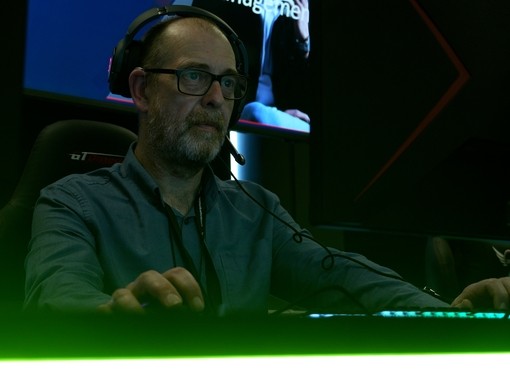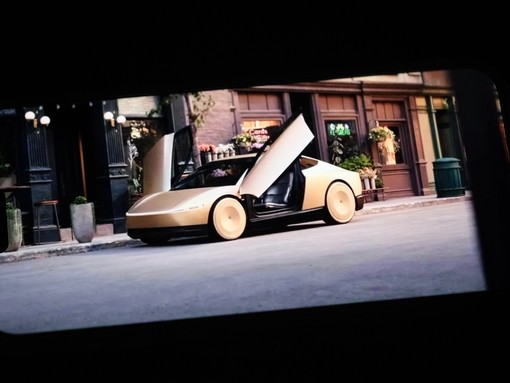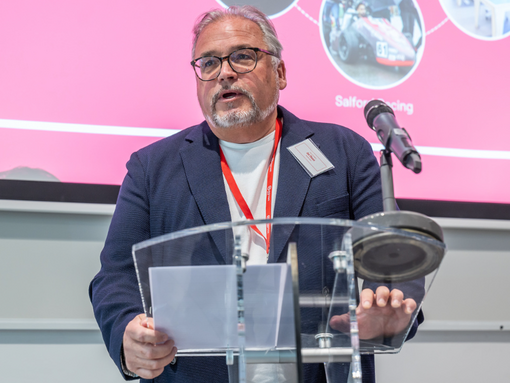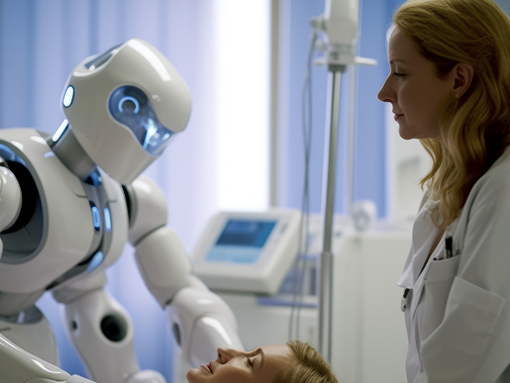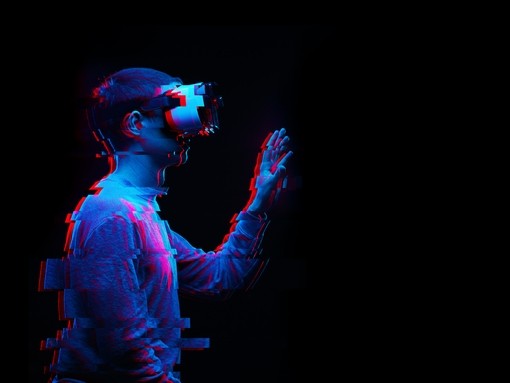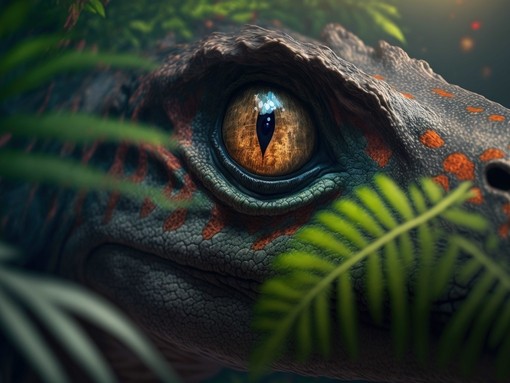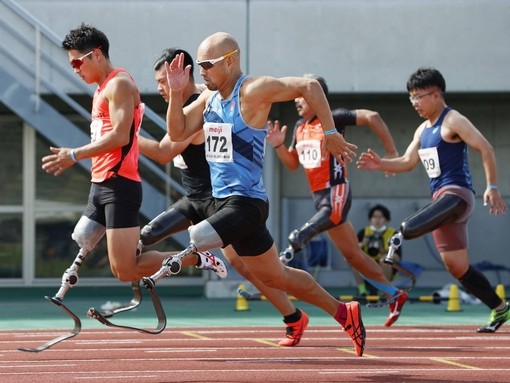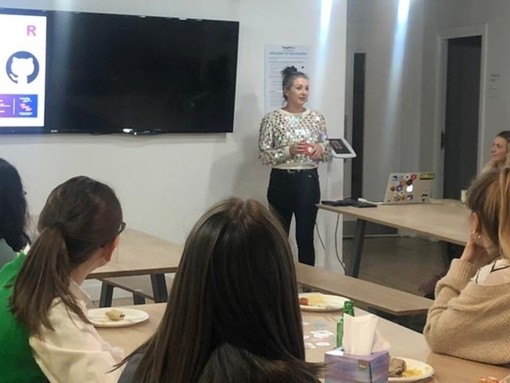
The amazing world of Computer Vision: a career journey in artificial intelligence
Contents
- What made you choose computer science as a career?
- What did your master’s thesis involve?
- How do you decide which route within computer science to take?
- What advice would you give to someone who is thinking of embarking on a career like yours?
- What modules or courses would you recommend for Computer Vision?
Contents
After years of middling progress, artificial intelligence innovation has rapidly become a hot topic in technology. This is due largely to the data revolution over the last two decades and the need for new systems that learn and adapt.
Computer vision is the growing field of study that is enabling computers to replicate human vision. Falling under the general umbrella of artificial intelligence, the computer vision process involves image acquiring, analysing, and extracting information from visual sources. This information is then processed to allow the computer to translate the visual content into data which is turned into computer-readable language. It has applications ranging from virtual and augmented reality and security to medical imagery.
But how do you get into this growing and rapidly innovating field?

From studying for his BSc in Computer Science on a Greek island to specialising in artificial intelligence in the heart of Scotland’s busiest city, Antonios Ntelidakis has forged a career in computer science that has led him to work as a Lead Data Scientist. His current role involves leading a tech giant in the design and development of their UK’s solutions for accident damage vehicle assessments, insurance churns and more, using data science and leveraging Machine Learning, Deep Neural Networks, Computer Vision, Recommender Systems, or NLP. We spoke to him about his journey into computer vision and his advice for others to get into the field:
What made you choose computer science as a career?
I got into computer science by accident. I originally wanted to be a pharmacist, but I thought I’d give it a try so I joined a computer science university degree. It was an interesting degree but it’s also a vast field. You have to be lucky and find the right fit for you.
After that, I decided to do a master’s. I decided to do the thing I like the most, so I picked artificial intelligence. I picked the University of Edinburgh which is a great computer science university in Europe and enrolled in its artificial intelligence specialization! There were some great courses like machine learning and pattern recognition, reinforcement learning, advanced computer vision and more. I found advanced computer vision to be one of the most impressive ones. It was very interesting, with lots of diverse problems to engage in.
What did your master’s thesis involve?
I had to develop algorithms for motion control with computer vision sensors for a mini blimp, an aerial robotic platform. This really was what sparked the flame in me for computer vision with other artificial intelligence domains. I finished, I went to the Foundation of Research and Technology in Greece and I just thought let’s give it a shot. I emailed directly to the laboratories engaging in AI and computer vision. I engaged with the fun-looking one which was the Human-Computer Interaction Laboratory and I was engaged with augmented reality work for around six years. For me, it was kind of luck that I ended up engaging early in this field.
How do you decide which route within computer science to take?
What fits best in your personality? Do you want to be a professor or a researcher? Or do you want to do something that’s applied research? I’m that person. I respect people who take the other routes but for me I prefer something more balanced, trying to keep our mind sharp with state-of-the-art techniques and try and build a product out of it. What helped me was the background degree that I had, which means I can be quite hands-on when needed. As you progress you might become less of an engineer and more of a data scientist or a completely different type of role instead. It depends on where you find yourself.
What I found is that you should not be biased about what you are good at or have been doing over the last few years. What’s important is the mindset. I have experience across almost every field of machine learning and AI but it’s what I choose to spend more time in is solving problems. It’s all the same rules and recipes.
What advice would you give to someone who is thinking of embarking on a career like yours?
I would say for someone who has not decided yet if they want to do a Masters or a PhD, maybe first give it a shot in the industry. You will see if you want to invest time and money into it then. There are programmes like the Marie Curie research grants where you can do the PhD while being engaged as a contractor. ‘It’s a funded research project with industry and academic partners and you’re hired as a professional. Findings of the work are turned into academic research and at the end of the project, you compile it into a PhD thesis in collaboration with the academic partner. That’s the best way for me. If I could go back in time, I would probably do something like that, so I could get applied research experience, and turn it into a PhD thesis whilst being an employee.
What modules or courses would you recommend for Computer Vision?
I think there’s no right answer. I would say pick something you enjoy doing. If you’re forced to do something, you’ll always get better but if you pick something you love it is less like labour and more like a hobby. This is how I’ve done things for the past 10 years. Of course, you’ll always find yourself doing things you don’t enjoy and have to do it but it’s also part of the real world. With regard to specialisation modules, in my experience, you have to get your hands dirty. It’s important to have solid computer science foundations to set up your proof of concepts or projects. Also, not only software engineering or programming, try and keep up with tools and technology like cloud tools. There is no recipe that will work always, it’s just trying to keep an eye on what’s the trend now and try to keep up with the things you have time to invest in. You’re never going to be a one-man team, so invest in what’s valuable for you. Be a good person, respectful to your colleagues and always be hungry for knowledge.
Computer vision is one part of the equation for AI. My opinion is that we shouldn’t be biased to one field of AI but we have to see the bigger picture. For me, the next best thing is recommendation engines, because they are going to use features from computer vision, NLP or traditional machine learning and make more smart decisions.
In computer vision, it’s how you’re going to be more efficient in speed and accuracy. Are you going to first implement smart solutions to systems with low computational power, and then how you will make them more effective in problems that are not solved yet? It’s two steps, how you improve the algorithm and how you improve the hardware and implementation of those algorithms.
The Morson Technology team are experts in recruiting specialist IT and technology talent for your business. Whether you’re a budding start-up or an experienced business, get in touch with the team to talk about your IT and technology needs.
Contents
- What made you choose computer science as a career?
- What did your master’s thesis involve?
- How do you decide which route within computer science to take?
- What advice would you give to someone who is thinking of embarking on a career like yours?
- What modules or courses would you recommend for Computer Vision?


